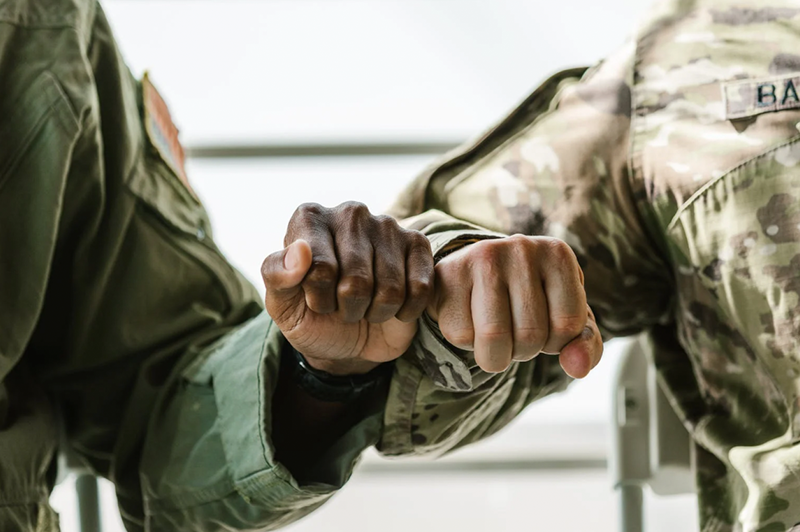Vet-Vet Peer Program
Veteran Connect is a peer-based support initiative designed to ease the transition from military to civilian life. Its central purpose is to provide structured yet informal opportunities for veterans to form meaningful connections with one another. By fostering conversation, companionship, and mutual understanding, the program helps participants navigate the complexities of reintegration in a setting that feels familiar, respectful, and judgment-free.
This initiative emphasizes low-pressure, person-to-person interaction over clinical or therapeutic services. It does not function as a mental health program but rather as a supportive space where veterans can speak honestly with others who have shared similar experiences. Through casual dialogue and consistent companionship, the program aims to combat the isolation many veterans feel and encourage a sense of belonging.
The need for such support is significant. Reentering civilian life after military service often presents a host of challenges, from adjusting one’s identity and finding employment to managing mental health and maintaining relationships. Many veterans report a loss of structure and a deep sense of disconnection from their communities. According to Pew Research, over half of post-9/11 veterans have experienced difficulty readjusting to civilian life. Nearly one in four report feeling socially isolated, and the U.S. Department of Veterans Affairs states that approximately 17 veterans die by suicide each day. Research has shown that peer support programs like Veteran Connect can reduce symptoms of PTSD, improve emotional well-being, and help individuals rebuild a sense of purpose and stability.
Veteran Connect operates through four core components. The first is peer matching, where veterans are paired based on shared interests, goals, or service backgrounds. These matches are designed to feel natural and supportive, encouraging trust from the beginning. Once matched, veterans engage in regular check-ins, which may take the form of phone calls, text messages, video chats, or in-person meetups, depending on what works best for each pair. Conversations are informal and can touch on any topic—career changes, family life, mental health, or simply daily routines. The goal is to maintain a consistent connection and offer mutual support. In addition, the program hosts optional group events, including community meals, service projects, wellness activities, and recreational outings. These gatherings allow participants to expand their social circles and engage with the broader veteran community in meaningful ways.

